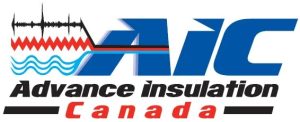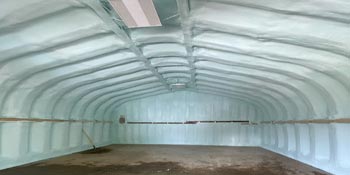Basement Insulation
Affordable Insulation Experts with 5 Star Reviews
- Residential, Commercial, Industrial, Agricultural
- Local Experienced Experts
- Licensed and Insured
- FREE Competitive Quotes
Request FREE Basement Insulation Quote
Discover Rebate Opportunities!
Basement Wall Insulation Benefits
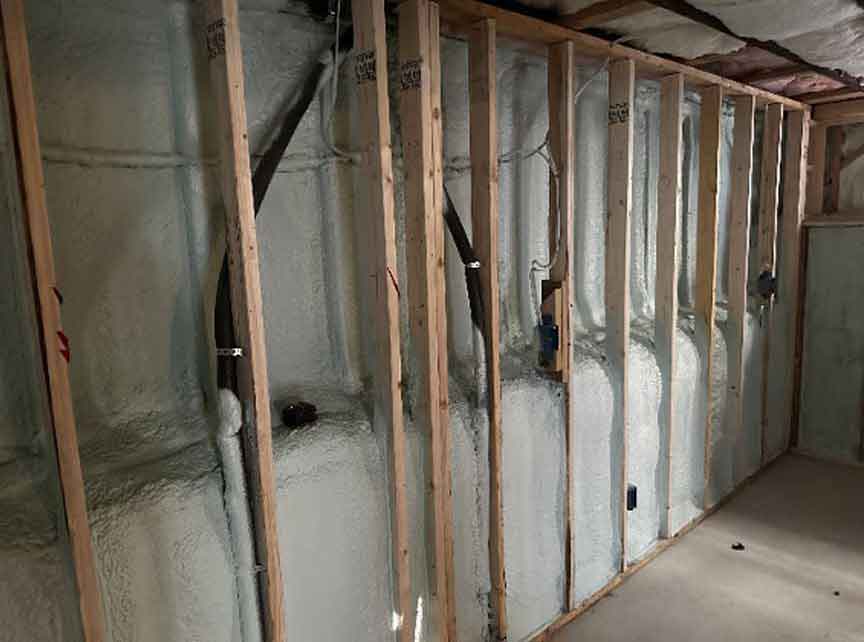
Energy Efficiency
Moisture Control
Improved Comfort
Increased Home Value
Environmental Benefits
Check Our Basement Insulation Products!
Expert Basement Insulation at an affordable price
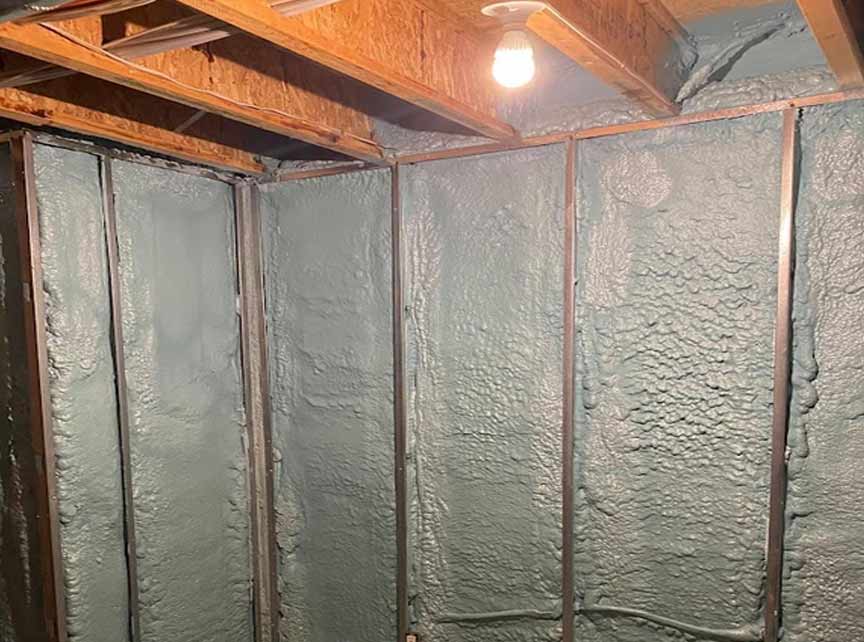
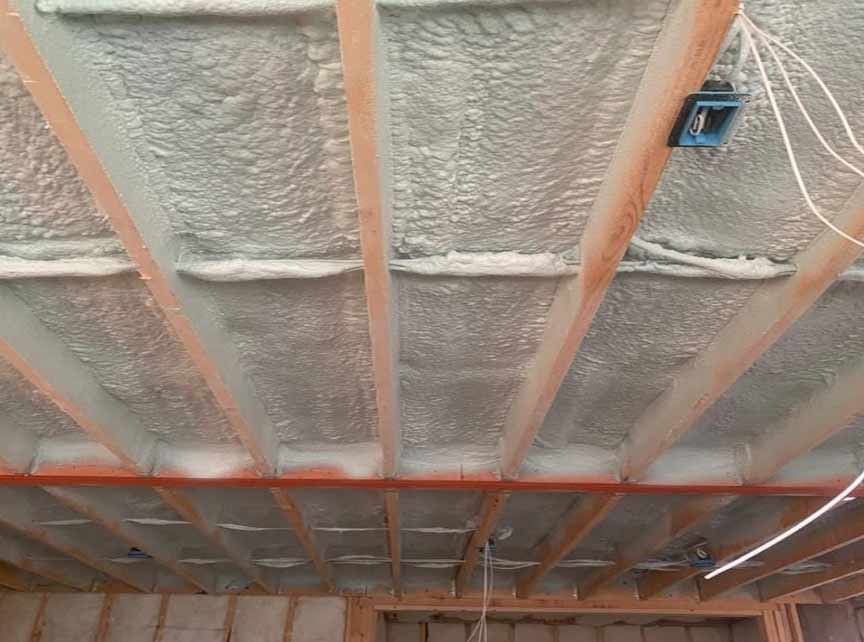
Advance Insulation Canada knows first hand that adding insulation to a basement is a smart move for homeowners because it helps in more ways than one. The dramatic drop in energy costs is one of the biggest benefits. Insulating a basement can help save money on utility bills by preventing heat loss in the winter and keeping the space more relaxed in the summer. This results in long-term savings on energy bills, making the solution economical.
However, basement insulation has many more advantages than just cost savings. An effective moisture barrier, insulation prevents water seepage and mold growth when installed correctly. The prevention of mold and mildew growth thanks to this moisture control not only safeguards your home’s structural integrity but also provides a healthier environment for you and your family.
Having a properly insulated basement can also improve your home’s habitability. Spray foam improves the climate control making the space suitable for various year-round functions, from play to work to sleeping. As a bonus, soundproofing can be improved by insulating the basement to lessen the noise that travels up from the basement.
The value of your home can be boosted from an investment standpoint by insulating the basement. A well-insulated basement is a desirable amenity, as homebuyers are increasingly interested in environmentally friendly properties. In addition to saving money, basement insulation can help lessen your impact on the environment. Your home will be more eco-friendly and sustainable if you reduce your energy consumption. In conclusion, basement insulation is a worthwhile expenditure that benefits your wallet, your health, your comfort, your home’s resale value, and the environment.
Call us today or fill out our form for a FREE quote!
Give us a call today or fill out our online form for a FREE quote. Our goal is to ensure that your home or business needs are properly addressed and you receive the service you deserve.
What Our Customers Say About Us!
Basement Insulation Products
Attic floor or roof sheeting
Interior wall insulation
Exterior, below-grade and under-slab applications
Box joists and cantilevers
Industrial conduit pipes
Exterior wall insulation
Attic floor or roof sheeting
Exterior, below-grade and under-slab applications
Box joists and cantilevers
Freezers and coolers
Industrial conduit pipes
Our Other Insulation Services
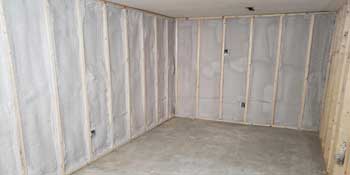
High-efficiency insulation with an airtight seal for optimal temperature control.
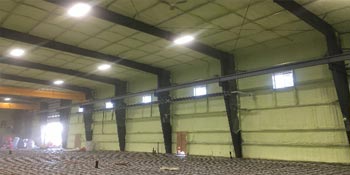
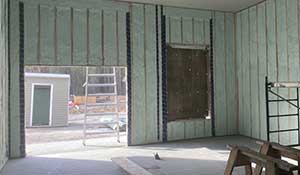
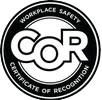


Basement Insulation FAQ
What are the common materials used for basement insulation?
Insulation materials for basements are typically selected following some criteria and individual needs. Standard supplies include the following:
Fiberglass: Insulation made of fiberglass is one of the most popular options for use in basements. It is available in batts or rolls and can be set up quickly. It is inexpensive while providing excellent thermal resistance.
Foam Board: One more common type of insulation used in basements is rigid foam board. It has a high tolerance for heat and can withstand much wetness. Different applications for foam board insulation call for different thicknesses of the material.
Spray Foam: Closed-cell and open-cell spray foam insulation is highly airtight and has a high R-value. It can be used in inaccessible places, allowing for complete coverage.
Reflective Insulation: Insulation with a reflective surface reflects heat and can be used in conjunction with other forms of insulation to improve thermal performance.
How much insulation your basement needs to be comfortable and cost-effective is a factor in deciding which material to use. When choosing the suitable material for your basement insulation project, you should consider moisture resistance, installation ease, and long-term performance.
How do I determine the right R-value for my basement insulation?
What's the difference between spray foam and batt insulation for basements?
It all comes down to personal preference when deciding between spray foam and batt insulation for a basement. Both choices have merit and can be helpful in various contexts.
Spray Foam: Both closed-cell and open-cell spray foam insulation provide superior thermal performance and efficient air sealing. It can be applied in inaccessible places to form a seamless, airtight barrier restricting heat flow. Because of this, it is a fantastic option for basement insulation, particularly in areas with extreme temperatures or when working with irregular or challenging spaces. In comparison to batt insulation, however, it is typically more costly.
Batt Insulation: Batt insulation is an inexpensive option found in fiberglass or mineral wool rolls. It’s simple to set up and effective as basement wall and ceiling insulation. It may not be as effective at air sealing as spray foam, but it can still help with efficiency and comfort.
It’s essential to consider price, insulation needs, and basement layout when deciding between spray foam and batt insulation. Talking to an insulation expert can help you find the best option for your home.
Are there any specific moisture concerns when insulating a basement?
What are the signs that my basement insulation may need an upgrade?
Are there any available rebates or incentives for basement insulation projects?
It is advisable to look into rebates and incentives for basement insulation before making a final decision. Insulation projects and other energy-saving home improvements are often eligible for local government rebates in many areas. These expense reductions make basement insulation a more sensible expenditure.
We suggest checking out our specialized rebate page to learn about current rebates and incentives available in your area. This page has the most up-to-date information on any programs that may be helpful to you and instructions on how to apply for them. Homeowners can use it as a guide to saving money and energy while improving their living conditions.
Keep up with any financial incentives that could make your basement insulation project more appealing by checking our rebate page. Besides helping your wallet, these rebates make your house greener and more sustainable.
Whether or not you should insulate your basement and to what extent depends entirely on your situation. To make sure your basement is always comfortable and energy efficient, it’s a good idea to consult with our insulation experts.
